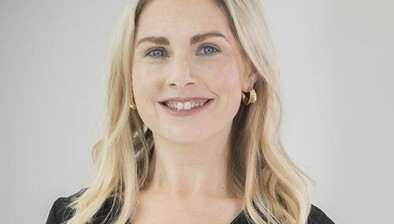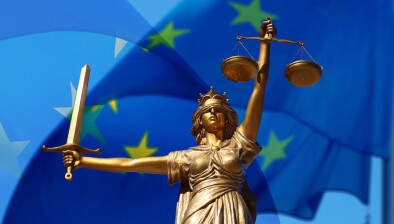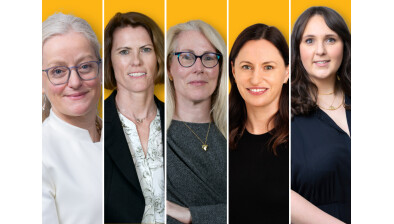High Court: Adoptions of two Russian boys to be registered pursuant to s.92 of the Adoption Act 2010

The High Court granted orders pursuant to s.92 of the Adoption Act 2010 facilitating the registration of the adoptions of two Russian boys on the Register of Intercountry Adoptions despite non-compliance of the adoptions with The Hague Convention.

About this case:
- Citation:[2023] IEHC 753
- Judgment:
- Court:High Court
- Judge:Mr Justice John Jordan
Delivering judgment for the High Court, Mr Justice John Jordan stated: “It is important that a court, which is asked to give recognition to a foreign adoption which has not complied with the domestic legislation and The Hague Convention, have regard to the need to support the spirit of the domestic legislation and of The Hague Convention. It is important that the court does not act in such a way as would remove the deterrent effect that is contained in the international convention and in the domestic legislation…”
Background
The first and second applicants were Irish citizens, who met each other in New York in 1997 and got married in Las Vegas in 2001. They lived and worked in the US for more than 20 years, and together they adopted four children.
Two of their adopted children, their sons M and S, were biological brothers born in Russia and were adopted simultaneously by the applicants in February 2011 whilst they were living in New York. The first and second applicants subsequently applied for and obtained American passports and social security numbers for them.
The entire family returned to Ireland in June 2015, with M and S having complied with all the formal requirements in respect of their adoption. They were subsequently provided with Irish PPS numbers following an examination of their paperwork. Both children attended primary and secondary school in Ireland.
In 2019, the adoptive parents attempted to obtain Irish passports for M and S, only then becoming aware that their adoptions had to be registered in the Register of Intercountry Adoptions for their adoptions to be legally recognised within the Irish jurisdiction.
An application was made under s.92 of the Adoption Act 2010 for orders having the effect of registering the adoptions in the Register of Intercountry Adoptions and so legally recognising them in Ireland.
The High Court
Mr Justice Jordan considered that the application threw up the “vexed question” as to the extent to which a court can permit any deviation from The Hague Convention in respect of intercountry adoptions and from the Adoption Act 2010, as amended.
The court opined:
“It is important that a court, which is asked to give recognition to a foreign adoption which has not complied with the domestic legislation and The Hague Convention, have regard to the need to support the spirit of the domestic legislation and of The Hague Convention. It is important that the court does not act in such a way as would remove the deterrent effect that is contained in the international convention and in the domestic legislation — which deterrent effect has had a beneficial impact in terms of eliminating or rather reducing the bad practices that were prevalent.”
Emphasising that he was dealing with the case having regard to the “important consideration which is a best interests consideration in terms of the welfare of children — but at a broad level”, Mr Justice Jordan noted: “There is a balance of harm assessment required in any of these situations in order that one does not dilute the beneficial effect of The Hague Convention in respect of Intercountry Adoptions and the beneficial effect of the Adoption Act 2010, as amended.”
Noting the judgment in JM v AAI [2022] IECA 171, the judge highlighted that he should consider whether the case before him is “genuinely exceptional” and not likely to lead to “repeated circumventions” of Convention requirements.
Finding it important that Russia did not give effect to the Convention so that the adoptions in question could not have been “Hague compliant”, and having regard to the submissions of the Attorney General, the court declared that it was satisfied of the bona fides of the adoptive parents and that they had done everything that they believed was necessary both in Russia and the United States to have the adoptions processed and recognised.
Endorsing the “truly exceptional case test” as set out in JB & KB (A minor) CB & PB v The Attorney General [2018] IESC 30, Mr Justice Jordan stated that “the case must be exceptional, and exceptional in the sense that it cannot create a precedent which would allow a coach-and-four be driven through the protections afforded to children by The Hague Convention and the 2010 Act”. In line with JB, the court considered that “it could not be that the best interests principle would trump all other considerations. It is an important consideration but not the only consideration.”
The court agreed with eight principles which were advanced to it in respect of exceptional cases which are non-compliant with the Convention:
- That s.92 should be construed narrowly and with great care;
- That there is a high onus or bar on applicants for relief under s.92;
- That the jurisdiction is confined to truly exceptional cases;
- That the reason for the high bar is to prevent a parallel ad hoc system becoming routine;
- That the court should have regard for the possible adverse impact on other children arising from overusing s.92;
- That the onus is on the applicants to prove that it is a truly exceptional case;
- That the “best interests of the child” is insufficient in itself to justify the making of the order;
- That bona fides is insufficient in itself to justify the making of the order.
Mr Justice Jordan examined the factors to be considered using a “rigorous approach”, finding inter alia that the applicants were suitable to be adoptive parents, that there was no intentional circumvention of the law where the circumstances constituted an “accident of emigration”, that the applicants were decent people who had done everything they believed to be necessary to adopt the boys, and that there was a legitimate and understandable excuse in terms of what was and was not done.
The judge noted the submission of the Attorney General that in the discrete and limited category of adoptions granted in Russia which were being processed at the date of commencement of the 2010 Act, and which were completed within a short period following that commencement, the registration of such adoptions would not be contrary to the scheme and purpose of the 2010 Act.
Conclusion
Agreeing that he would confine his decision to the discrete and limited category before him, Mr Justice Jordan granted the orders sought in respect of M and S.
E.McW & Ors v The Adoption Authority of Ireland; E.McW & Ors v The Adoption Authority of Ireland [2023] IEHC 753












